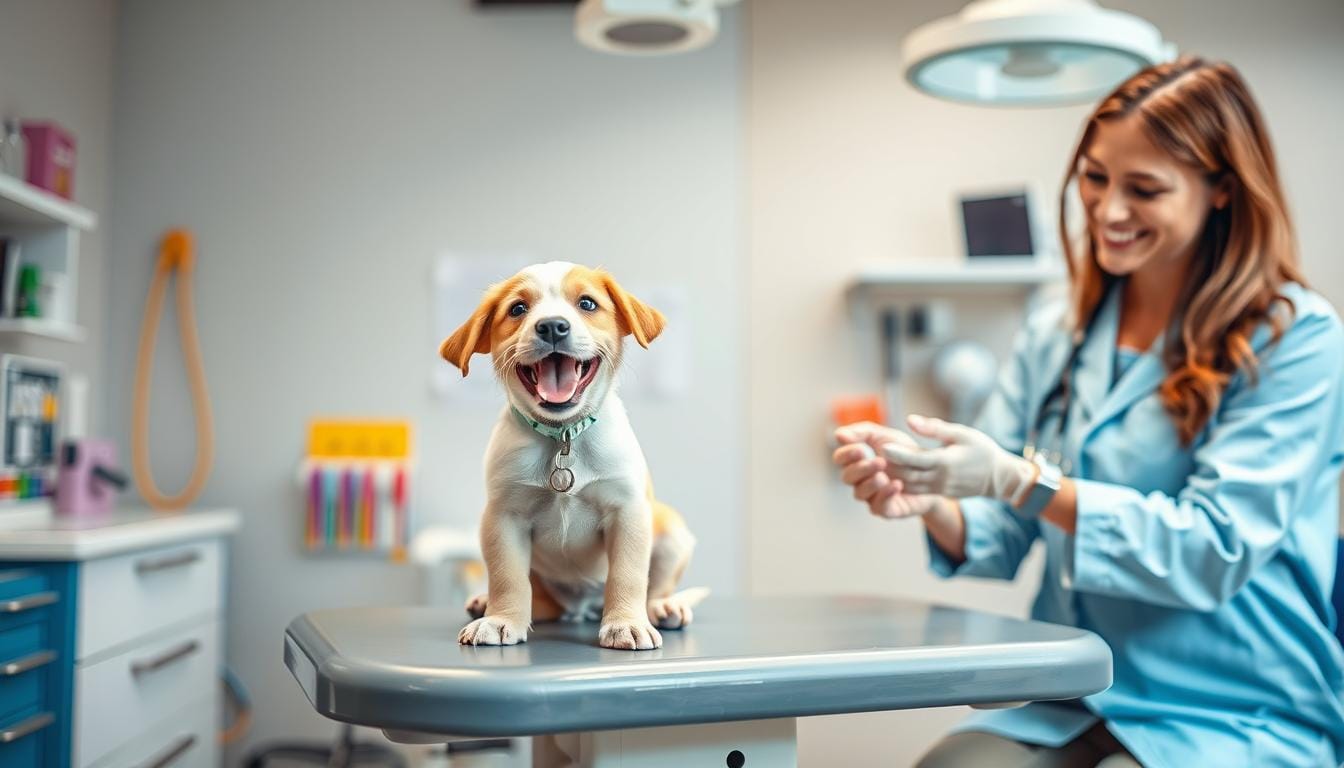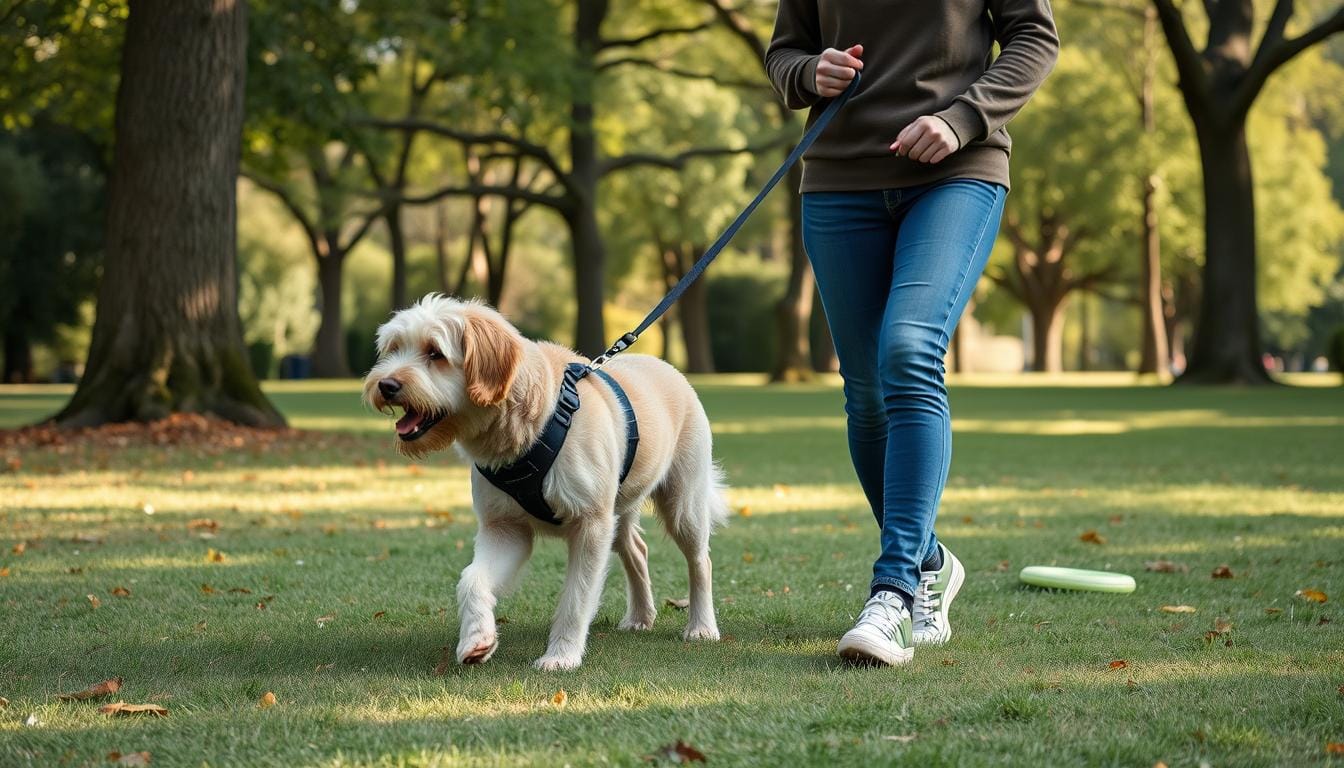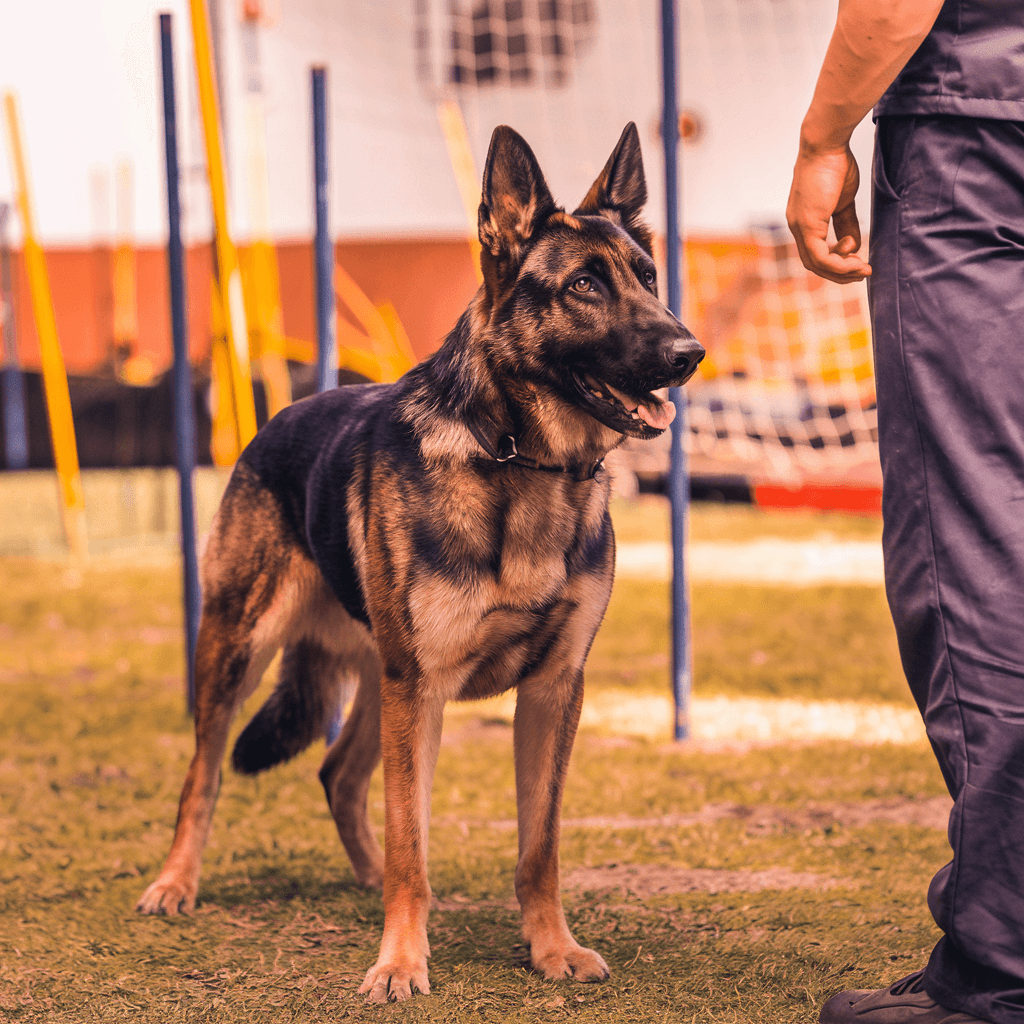Bringing a new puppy home is exciting. But, they need special care to stay healthy. Puppy health problems can pop up fast. So, knowing how to prevent them is key.
Puppies face unique health risks because their immune systems are still growing. Issues like parvovirus and kennel cough can be serious. But, many can be stopped with the right steps. Let’s explore how to help our puppies have a healthy start.
Key Takeaways
- Puppies are more susceptible to health issues than adult dogs
- Common problems include parvovirus, distemper, and parasites
- Proper vaccination is crucial for preventing many puppy illnesses
- Early detection and treatment improve recovery chances
- Regular vet check-ups are essential for maintaining puppy health
- Good nutrition plays a vital role in building a strong immune system
- Parasite prevention should start early in a puppy’s life
Understanding Puppy Health Issues, Prevention Tips, and Pet Care
Puppy health issues can worry new pet owners. We’ll look into why puppies need extra care and share tips to keep them healthy.
Why Puppies Are More Susceptible to Health Issues
Puppies have weaker immune systems, making them more open to diseases. Their bodies are still growing, so they can’t fight off infections like adult dogs. That’s why puppy vaccinations are so important in the early years.
The Importance of Early Prevention
Early prevention is vital for your puppy’s health. The American Animal Hospital Association (AAHA) suggests a detailed vaccination plan. This includes the Rabies Vaccine and DAPP for dogs. Regular vet visits are also key to check on your puppy’s growth and catch any health problems early.
Basic Healthcare Essentials for New Puppy Owners
New puppy owners should keep these pet care basics in mind:
- Vaccinations: Stick to the vaccination schedule your vet recommends.
- Parasite Prevention: Use monthly preventatives for fleas, ticks, and heartworms.
- Nutrition: Feed your puppy a balanced diet that fits their age and size.
- Exercise: Make sure your puppy gets regular physical activity to support healthy growth.
- Socialization: Introduce your puppy to new experiences safely to prevent behavior issues.
By following these prevention tips and staying informed about common puppy health issues, you can give your furry friend the best start. Remember, consistent pet care is the key to a happy, healthy dog.
Parvovirus: A Serious Threat to Puppy Health
Parvovirus is a big risk for young dogs, especially those 6 to 20 weeks old. It’s very contagious and can be deadly. Knowing the symptoms, how it spreads, and how to stop it is key for puppy owners.
Identifying Parvo Symptoms
Spotting parvovirus early can save a life. Look for severe vomiting, bloody diarrhea, fever, and tiredness. Dogs like Rottweilers, Doberman pinschers, and German shepherds are more at risk. If you see these signs, get your puppy to the vet fast. Most dogs die from parvo within 48 to 72 hours after showing symptoms.

Transmission and Prevention Methods
Parvovirus spreads when dogs or places they touch are infected. It can last months or years outside. To keep your puppy safe, get them vaccinated. Start the shots when they’re 6 to 8 weeks old, and keep up with them every 2-4 weeks until they’re 16 weeks old. Stay away from crowded places until your puppy is fully vaccinated.
Treatment Options and Recovery Process
Parvovirus treatment includes IV fluids, medicine, and watching the puppy closely. It can cost between $1,000 to $2,100, but about 85-90% of puppies survive. It takes 5-10 days in the hospital, and most dogs get better in two weeks. Vaccines are cheaper and safer than treatment.
| Aspect | Details |
|---|---|
| High-risk Age | 6-20 weeks |
| Vaccination Start | 6-8 weeks |
| Treatment Duration | 5-7 days hospitalization |
| Recovery Time | 5-10 days after symptoms |
| Survival Rate | 85-90% with proper care |
Kennel Cough in Young Dogs
Kennel cough is a big problem for young dogs. It’s a contagious illness that spreads fast in places with lots of dogs, like kennels and parks. Puppies can catch it quickly, often within a few days to two weeks.
It’s important to know the signs early. Look for a dry cough, runny nose, sneezing, and less appetite. If it gets worse, it can lead to pneumonia, especially in weak puppies.
To stop kennel cough, vaccinations are key. Vaccines help lessen symptoms. Your vet can help pick the right one for your puppy.
When treating kennel cough, care and cough medicines are used. Most puppies get better in two weeks. Keep sick dogs away from others for at least two weeks after symptoms stop.
| Kennel Cough Facts | Details |
|---|---|
| Common Causes | Bordetella bronchiseptica bacteria, canine parainfluenza virus |
| Incubation Period | 2-14 days |
| Symptoms | Dry cough, runny nose, sneezing, decreased appetite |
| Recovery Time | 1-2 weeks (with proper care) |
| Vaccine Types | Injection, nasal mist, oral medication |
Knowing about kennel cough and taking steps to prevent it can help keep our puppies healthy. Early action and care are crucial for a quick recovery.
Distemper: Prevention and Recognition
Distemper is a big threat to puppies. It’s a severe virus that can harm many parts of the body and even be deadly. We’ll look at early signs, vaccination schedules, and long-term health effects to keep your puppy safe.
Early Warning Signs
It’s important to spot distemper symptoms early. Look for signs like breathing problems, fever, and eye discharge in your puppy. As it gets worse, your puppy might show signs of brain problems. Puppies not vaccinated yet are at high risk.
Vaccination Schedule
Vaccines are the best way to fight distemper. The vaccine is often given with shots for other common dog viruses. Here’s when your puppy should get vaccinated:
| Age | Vaccination |
|---|---|
| 6-8 weeks | First distemper shot |
| 10-12 weeks | Second distemper shot |
| 14-16 weeks | Third distemper shot |
| Adult | Booster every 1-3 years |
Long-term Health Impact
Distemper can cause lasting health problems in puppies. Surviving dogs might have permanent brain damage. Some may get “hard pad disease,” which hurts their paw pads and nose. To prevent this, keep your puppy away from sick animals and make sure they get their shots on time.

There’s no cure for distemper. Treatment aims to help manage symptoms. By being careful and following health guidelines, we can protect our dogs from this terrible disease.
Common Parasitic Infections
Parasitic infections are big health problems for puppies. They need careful pet care and prevention tips. We’ll look at the most common parasites and how to keep your puppy safe.
Internal parasites like roundworms, hookworms, and tapeworms often affect puppies. They can make puppies lose weight, have diarrhea, and look dull. Deworming regularly is key to stop these problems.
External parasites, such as fleas and ticks, are also big issues. A single flea can lay up to 50 eggs a day, causing big infestations.
Heartworm disease, spread by mosquitoes, is very dangerous. To keep your puppy safe, use monthly preventatives. Giardia, a tiny parasite, can also cause big stomach problems in puppies.
“Prompt action is necessary when suspecting a parasite infestation, particularly for issues like heartworms that require immediate intervention to prevent complications and ensure the pet’s well-being.”
To keep your puppy healthy, follow these prevention tips:
- Regular vet visits for early detection
- Year-round parasite preventatives
- Good hygiene and grooming
- Check for parasites after outdoor play
- Treat quickly if you think there’s an infestation
| Parasite | Symptoms | Prevention |
|---|---|---|
| Roundworms | Pot-bellied appearance, diarrhea | Regular deworming |
| Fleas | Itching, hair loss | Monthly preventatives |
| Heartworms | Coughing, fatigue | Monthly heartworm medication |
By being informed and proactive, we can keep our puppies healthy and free from parasites. Remember, it’s easier to prevent than to treat when it comes to pet care.
Essential Vaccinations and Preventive Care
Keeping our puppies healthy starts with vaccinations and care. Vaccines are vital to stop deadly diseases. Let’s look at what makes a good health plan for puppies.
Core Vaccination Schedule
A good vaccination plan is crucial for your puppy’s health. The DAPP vaccines protect against distemper, adenovirus, parvovirus, and parainfluenza. These shots are given every 2-4 weeks until your puppy is 16-20 weeks old.
| Age | Vaccinations |
|---|---|
| 6-8 weeks | DAPP (1st dose) |
| 10-12 weeks | DAPP (2nd dose) |
| 14-16 weeks | DAPP (3rd dose), Rabies |
| 16-18 weeks | DAPP (4th dose if needed) |
Non-core Vaccines
Some puppies might need extra vaccines. These include Bordetella (kennel cough) and Leptospirosis. Your vet will tell you which non-core vaccines your puppy needs.
Deworming Protocol
Parasites are a big problem for puppies. Deworming starts at 2-3 weeks and goes monthly. Regular stool tests catch and treat parasites early.
Prevention is key. Regular vet visits, vaccinations, and care keep your puppy healthy. By following these steps, our puppies will be happy and healthy dogs.
Nutrition and Diet-Related Health Issues
Puppy nutrition is vital for their health. We’ll look at how to feed them right, common diet problems, and special needs. This ensures your puppy starts life on the right paw.
Proper Feeding Guidelines
Feeding your puppy the right amount is crucial for their growth. Puppies need more energy than adult dogs. Small breeds grow to adult size in 9-12 months. Here’s a quick guide for daily food portions:
| Dog Size | Weight | Daily Food Portion |
|---|---|---|
| Toy breeds | 3-6 lbs | 1/3 to 1/2 cups |
| Small dogs | 10-20 lbs | 3/4 to 1 1/3 cups |
| Medium dogs | 30-50 lbs | 1 3/4 to 2 2/3 cups |
| Large dogs | 60-100 lbs | 3 to 4 1/2 cups |
Common Dietary Concerns
Overfeeding is a big mistake in pet care. It can lead to joint damage, heart disease, and diabetes. Underfeeding is rare but can cause malnutrition. Water is key, making up 60-70% of a pet’s body weight. A 10% decrease in body water can cause serious illness.
Supplements and Special Needs
While a balanced diet usually meets a puppy’s needs, some may need supplements. Fats provide twice the energy of proteins or carbs. Carbs are essential for reproduction. Moderately fermentable fibers like beet pulp boost gut health. Be cautious with vitamins – too much vitamin A can cause joint pain and dry skin.
Remember, each puppy is unique. Consult a vet to create a tailored nutrition plan. This plan will address your puppy’s specific health needs and prevent common health issues.
When to Seek Emergency Veterinary Care
Knowing when your puppy needs urgent care is key for their health. We’ll cover common issues that need immediate vet help. Being ready can greatly improve your puppy’s health.
Look out for severe vomiting, trouble breathing, seizures, and injuries. Signs like pale gums, a big belly, or extreme tiredness mean you should act fast. Big puppies might face bloat, a serious issue that needs quick attention.
To prevent problems, keep harmful things away from your puppy. Also, watch them closely. Emergency vet clinics are open when regular vets are not, offering urgent care.
- Trouble breathing or continuous panting
- Suspected poisoning
- Severe bleeding or pale gums
- Eye injuries or sudden changes
- Inability to urinate, especially in males
If you’re not sure, it’s safer to call for help. Talk to your vet or an emergency clinic. Quick action can save your puppy’s life, making sure they get the care they need.
Conclusion
We’ve looked at common puppy health issues and how to prevent them. Puppy vaccinations are key, with a 99% success rate if done on time. This shows how important they are for our pets’ health.
Regular vet visits are crucial for catching health problems early. These visits can boost treatment success by up to 90%. Also, proper grooming cuts down skin issues by 30%.
Feeding your puppy a balanced diet is also essential. It supports healthy growth in 93% of cases. Parasite prevention treatments have a 98% success rate when used correctly.
By following these tips and staying vigilant, we can help our puppies stay healthy and happy. A proactive approach to their health is key for a long, happy life.
















